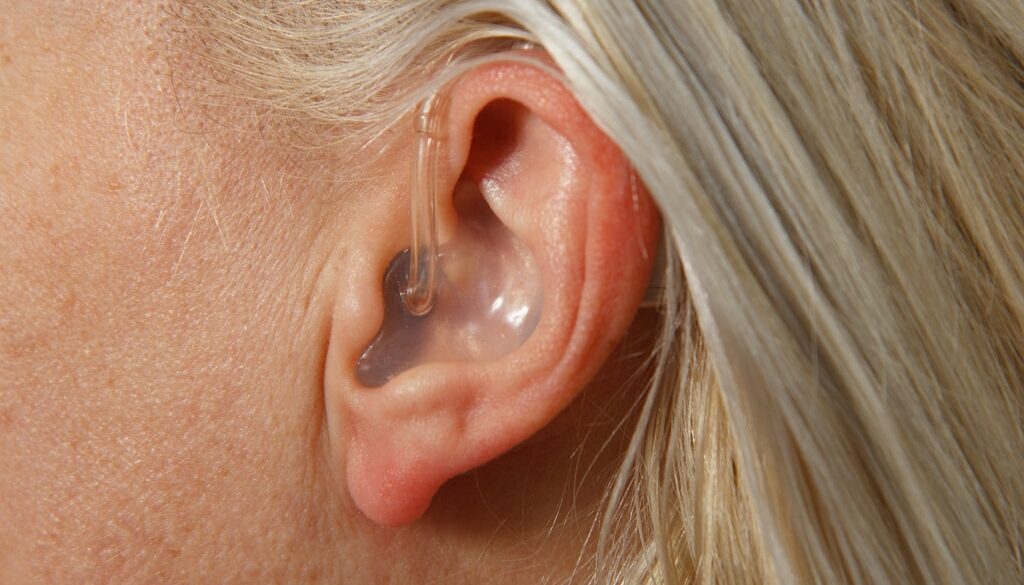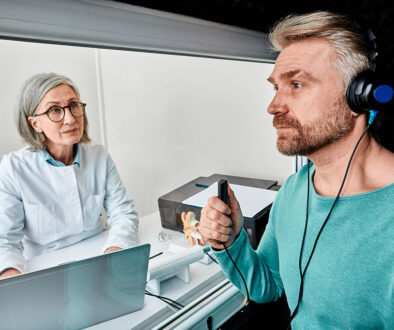Audiologist or Hearing Aid Specialist: Which Is Better?
There are few things more precious than the voices of those you love. Their words can comfort and uplift you, creating cherished memories that you treasure throughout your life.
But what if you can’t hear them? What if these words become faint or confusing?
Hearing loss has a profound effect on the lives of millions of Americans. In fact, an estimated 1 in 8 people has hearing loss in both ears, while 2 percent of those aged 45 to 54 have extreme, disabling hearing loss.
But perhaps most disturbing is the fact that among Americans aged 70 and older who could benefit from hearing aids, fewer than 30 percent have ever used them, according to the National Institute on Deafness and Other Communication Disorders.
Audiologists are key members of our team of experts here at Raleigh Capitol Ear, Nose and Throat, but many people become confused between the role of an audiologist or hearing aid specialist. In fact, many use these terms interchangeably when they are actually completely different careers. You may even wonder which one is best suited for helping you.
Because an audiologist has extensive education and can help diagnose and manage other issues in addition to hearing loss, an audiologist is the best choice for addressing your hearing problems.
But before we delve into the differences between these two roles, let’s take a closer look at what an audiologist is and how they help patients.
What Is An Audiologist?
An audiologist is a health care professional who has received extensive training in the specialized diagnosis and treatment of hearing and balance disorders. They perform comprehensive hearing evaluations and help patients of all ages. Based on the outcomes of the hearing evaluation, audiologists will provide individualized treatment options to help each patient with their communication needs, including the recommendation of hearing aids.
Audiologists perform individualized fitting of hearing devices, provide follow-up care for devices and recommend other assistive listening devices. Audiologists also assist in the examination, diagnosis and management of conditions involving the inner ear related to balance.
What Does an Audiologist Do?
While hearing tests may be the first thing you think of when you hear the word “audiologist,” it’s important to remember that these professionals also work with ear, nose and throat doctors to offer the following services:
- Providing consultations for determining which hearing aid is best
- Providing both customized and non-customized swim plugs
- Conducting diagnostic testing for inner ear balance disorders such as vertigo
- Videonystagomography (VNG)
Audiologist or Hearing Aid Specialist? What’s the Difference?
The most distinct difference between an audiologist and a hearing aid dispenser/specialist is the level of education required.
Audiologists must have both an undergraduate and a graduate degree in audiology. This often involves an internship before they can take an exam for national / state certifications and licensure. This amounts to around six to eight years of post-secondary education.
Audiologists must also pass rigorous national standardized examinations before they are allowed to practice.
Compare that to the educational requirements of a hearing aid specialist or hearing aid dispenser. While the minimum educational requirement for an audiologist is a master’s degree, a hearing aid specialist only has to have a high school diploma. While both may involve some kind of internship or apprenticeship, most audiologists are required to have at least 1,800 hours of clinical training.
Audiologist or Hearing Aid Specialist: Work-related Roles
While both a hearing aid specialist and an audiologist can conduct hearing tests, the audiologist can offer an extensive, additional scope of services. For example, they may also conduct tests to help diagnose balance disorders.
Is a Hearing Aid Dispenser an Audiologist?
No. As we reviewed earlier, there are distinct differences between the two. While an audiologist may dispense hearing aids, this does not mean that a hearing aid dispenser is an audiologist.
Audiologists require more extensive education and training than hearing aid dispensers. They also work closely with ear, nose and throat doctors like ours in the Raleigh and Triangle areas. Together, these skilled physicians and highly trained audiologists can provide a more comprehensive level of care than hearing aid specialists.
How Can I Tell If I Need an Audiologist?
Any time you have difficulty hearing or understanding what is said around you, you could benefit from scheduling an appointment with one of our audiologists in Raleigh or the surrounding areas of Holly Springs, Garner, Wake Forest and Cary.
You may be a candidate for a hearing aid if:
- You have difficulty understanding people if they are not facing you
- You frequently ask people to repeat themselves
- You have to turn the television to a high volume or use closed captioning to help determine what was said
- You have problems hearing over the phone
- You always feel that others mumble or speak softly
- You have difficulty understanding speech at large gatherings, whether that is a play, lecture or house of worship
Audiologist or Hearing Aid Specialist? Only an Audiologist Will Provide the Comprehensive Services You Need
With their extensive educational credentials, variety of skills and comprehensive training, audiologists are the natural choice to assist you with any hearing or balance problems you may be experiencing. All of our audiologists are licensed by the North Carolina Audiology and Hearing Aid boards.
At Raleigh Capitol Ear, Nose and Throat, we’re proud to provide the best audiology services for residents in Raleigh, Cary, Wake Forest, Holly Springs and Garner. We’ve established a tradition of excellence by serving area patients for more than 40 years.
If you have hearing issues, don’t wait to get help. Scheduling an appointment is simple and straightforward.
We would welcome the opportunity to care for you.




